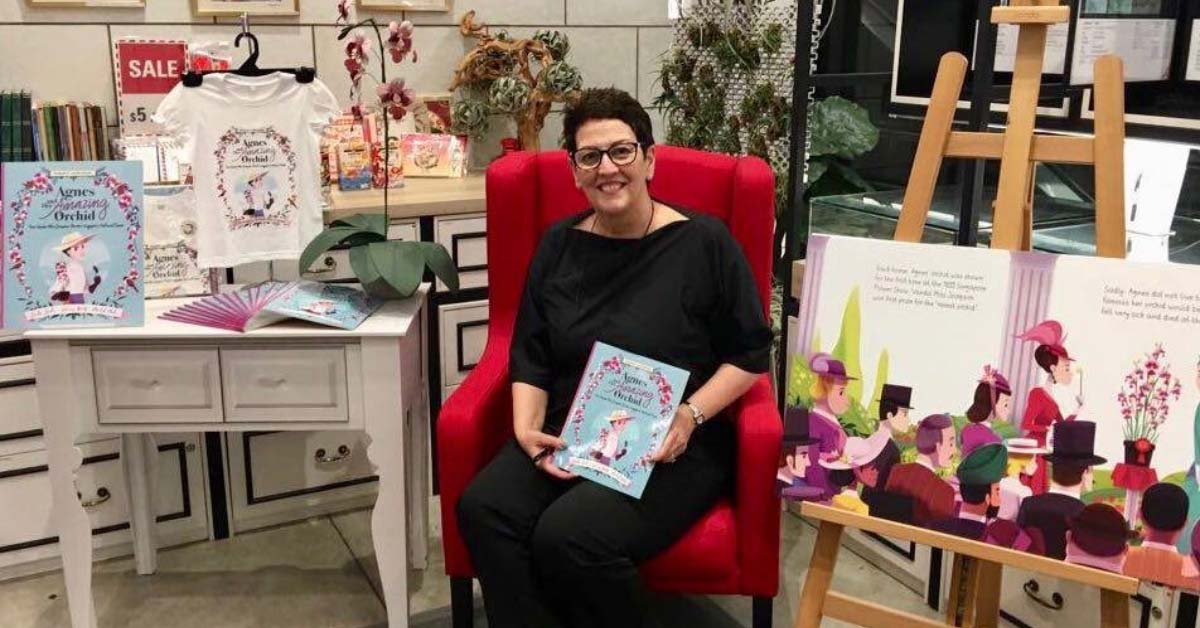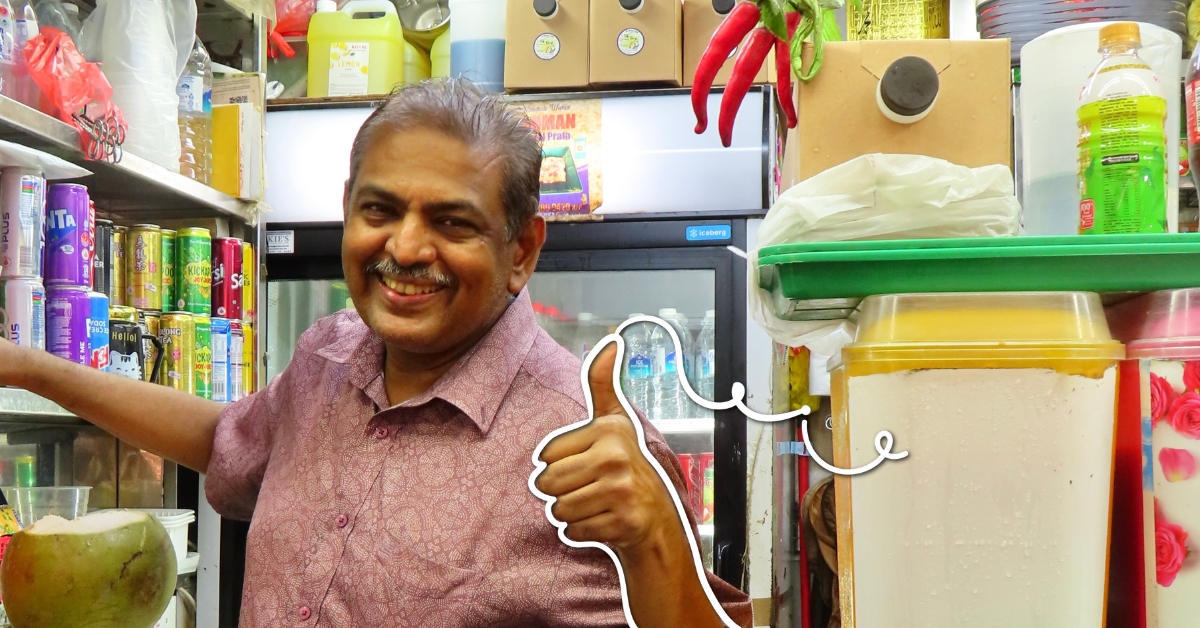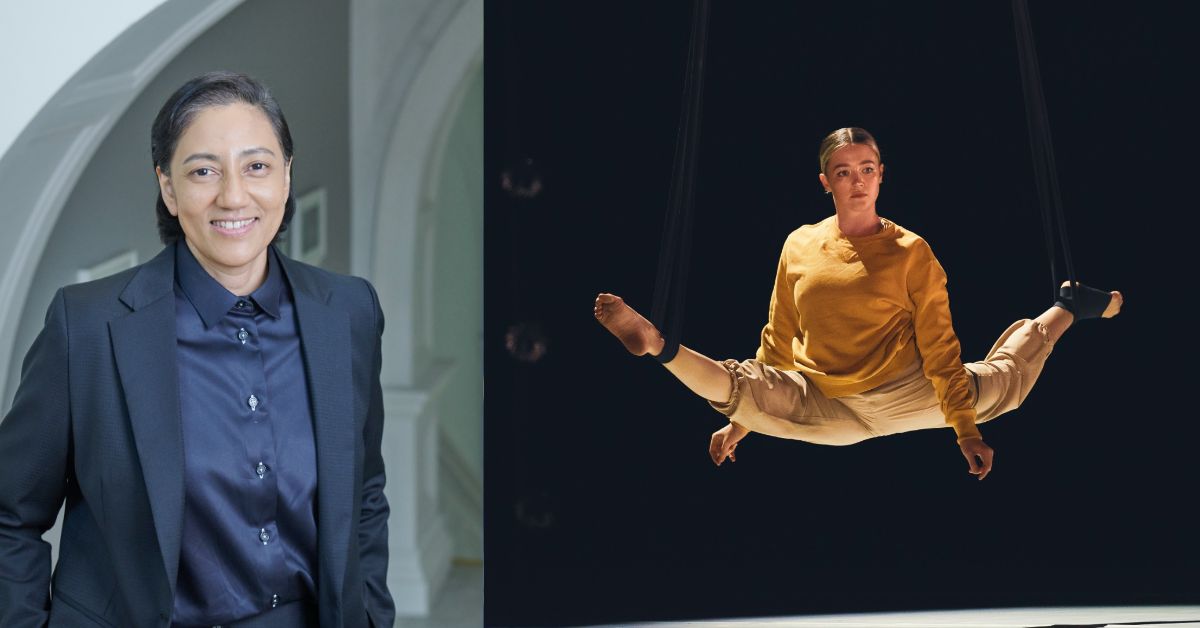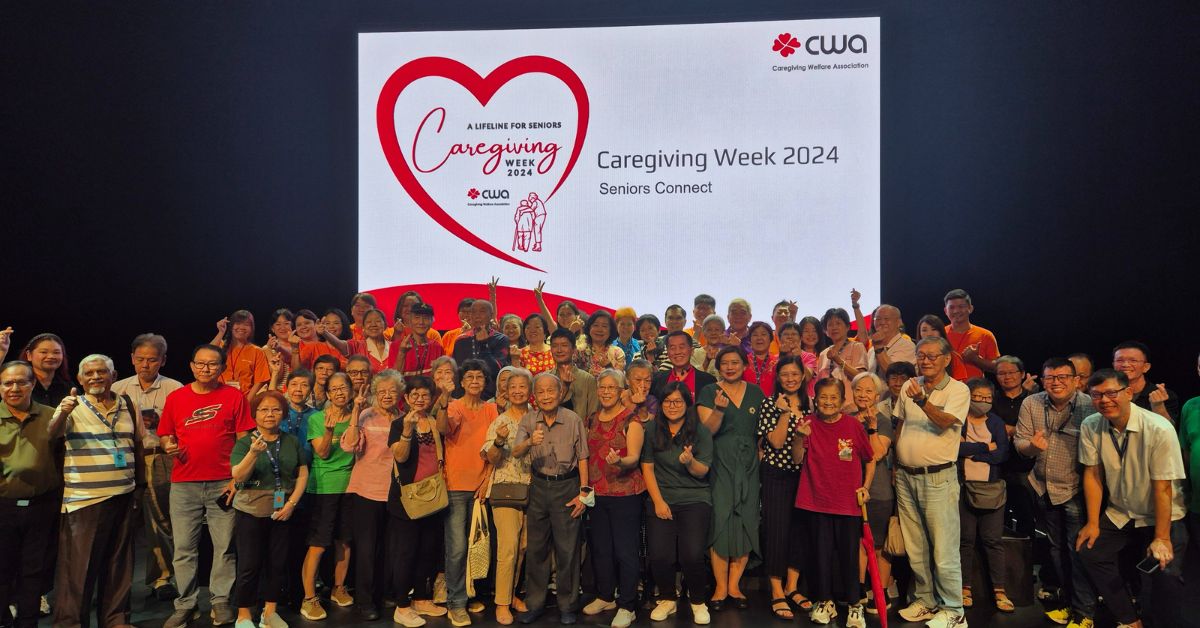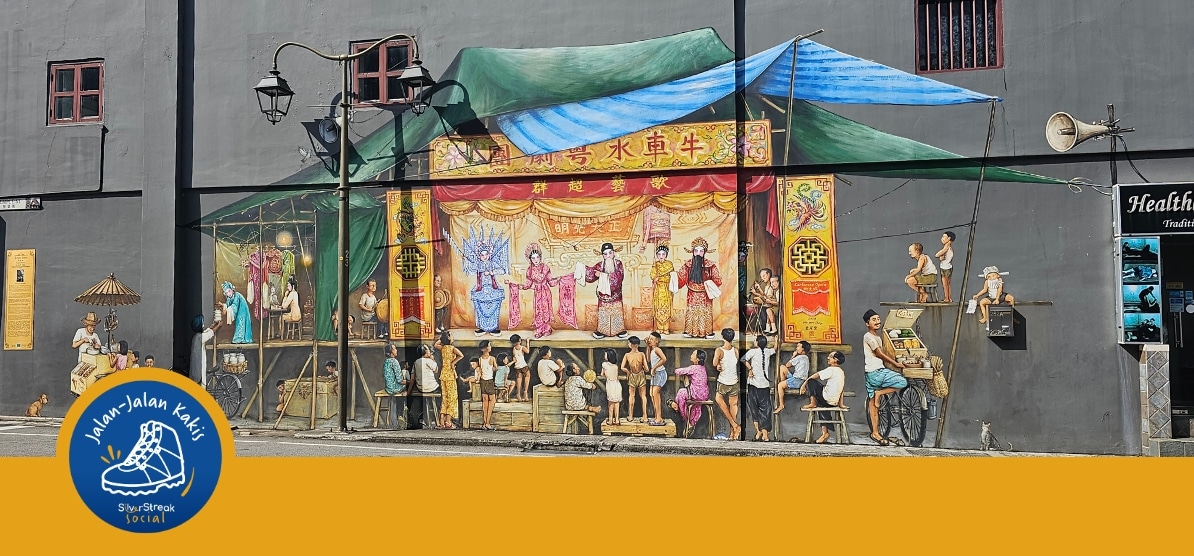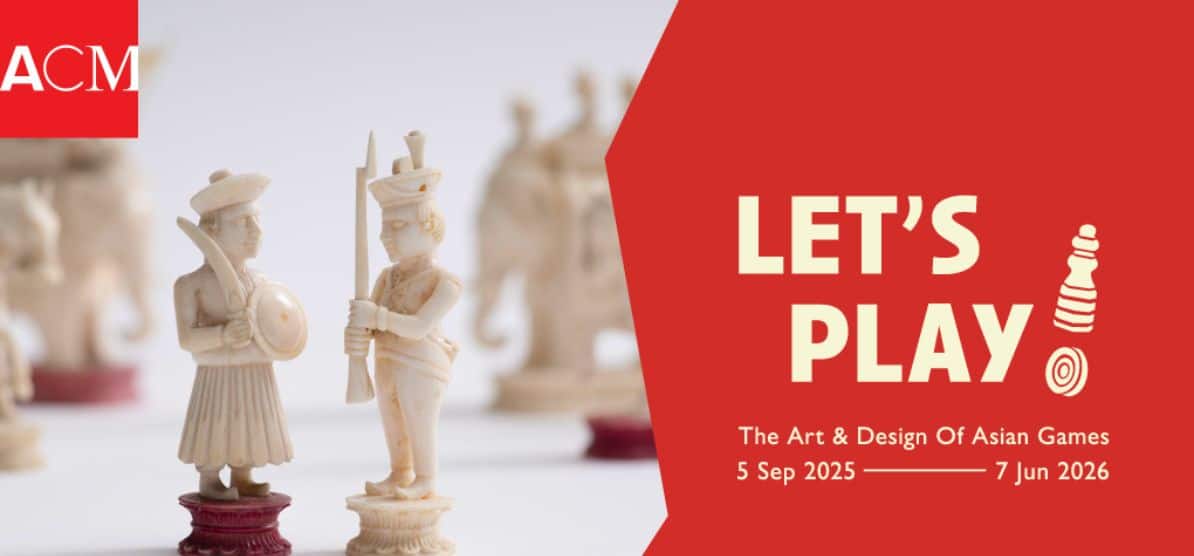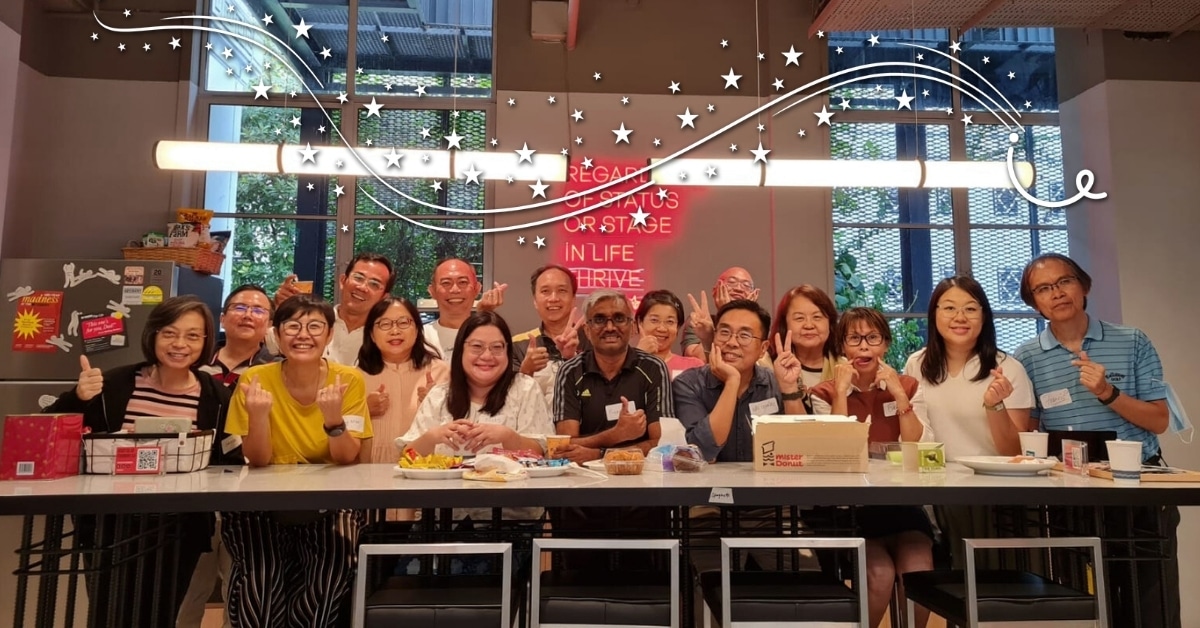
Most people hit the peak of their career in their late 40s or early 50s, and that’s when they start thinking about what's around the corner,
says Dr Tan Weng Mooi.
The 63-year-old would know – after all, she was in the same boat when she dreamt up PEASE, which stands for Preparing to Ease your Life Transition.
The community-led coaching programme runs quarterly workshops and sharing sessions tailored for people between the ages of 40 to 60.
With an average of 30 to 40 participants per programme, PEASE has come a long way since it was just an idea bouncing around the healthcare veteran’s head.
It was back in 2022 when Weng Mooi first found herself pondering life after work. Even then, she’d already witnessed many of her career-driven peers heading down the same road of confusion and unease at the bookend of a long and fruitful career.
We always tell each other to plan for what’s next, but planning doesn't solve all your problems. There’s the financial aspect, the mental aspect, and emotional aspect of transitioning to the next chapter that you need to consider, and there wasn’t a space then to discuss it,
she says.
The silver reached out to her contacts and began putting together an intergenerational action team from multiple disciplines.
To complement her healthcare background, she roped in 56-year-old Dr Ng Wai Chong, who similarly comes from a long career in healthcare and now runs NWC Longevity Practice, offering aged care consulting. Two younger women with marketing and programme development chops rounded out the crew.
Advertisement
PEASE: Not job coaching, but life coaching
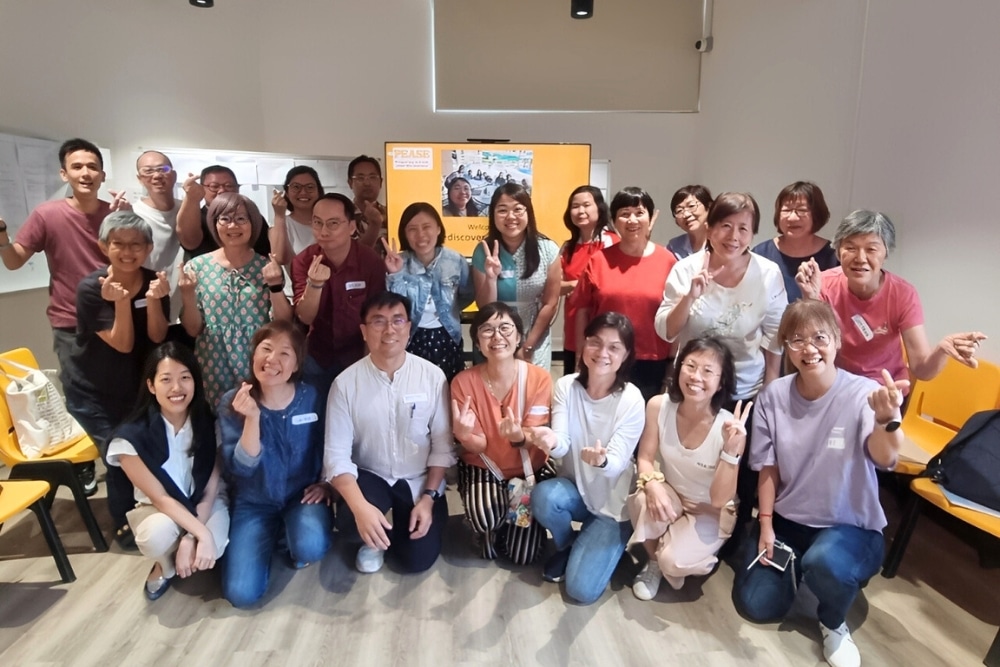
Credit: PEASE
The PEASE team conducted a series of surveys and focus group discussions within their networks to tease out what people prioritised most as they aged.
What came out of it was clear – staying healthy was the one biggest thing on everyone's mind as they age, which makes sense, because you can't do anything else if you aren't healthy,
says Weng Mooi.
"And coming from my line of work, we know that health is a result of many things. It is fundamentally psychosocial, with many separate aspects coming together to make up what you call health."
That’s probably why when it comes to ageing priorities, the runner-up for most people is meaningful engagement, followed by spending time with family.
Both Wai Chong and Weng Mooi noted that the results differed slightly depending on the demographic profile of the people they asked.
Men generally prioritise spending time with family above all else – maybe because they feel guilty about having worked all the time when they were younger,
Wai Chong says with a laugh.
Young silvers on the cusp of retirement talked more about the financial worries behind retirement, while those who had recently retired were more concerned with loneliness.
They're scared that they're going to wake up, open their eyes, sit up in bed and have absolutely nothing to do. If they haven't made preparations, they’d be thrust suddenly into a world of free time, which can be unnerving after years of having a schedule,
says Weng Mooi.
These findings laid the groundwork for the eventual PEASE programme, which consists of a full-day workshop and two follow-up half-day sessions. Participants are placed into small groups to keep things intimate and open.
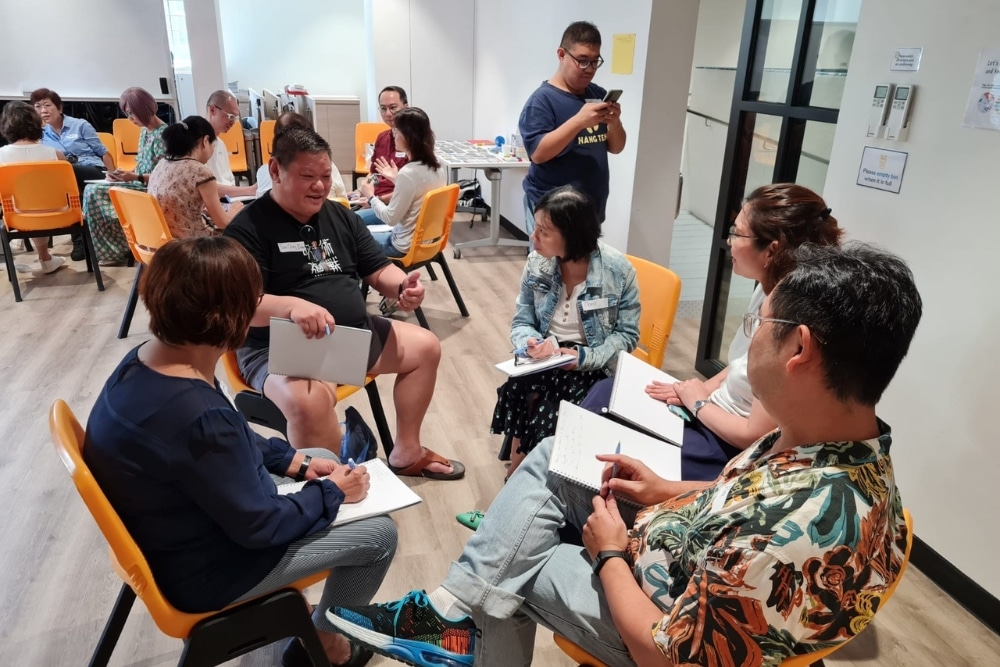
The emphasis of our sessions is on establishing a safe space for honest discussions. The participants have complete agency to talk about their priorities, set measurable, realistic goals, and co-create the kind of retirement they'd like to have with each other,
she says.
What they don’t do is talk about jobs, insofar as it goes to helping people find employment.
We're not in job coaching – we're in life coaching. We help each other to align our actions to the goals we want, and if that means jobs or volunteering, we'll tap on the network of people there to see if there are opportunities,
adds the silver.
According to Weng Mooi, an alumnus from an earlier workshop went on to find a retirement gig as a nature guide in Pulai Ubin, while a former caregiver rejoined the workforce as a staff member in an active ageing centre.
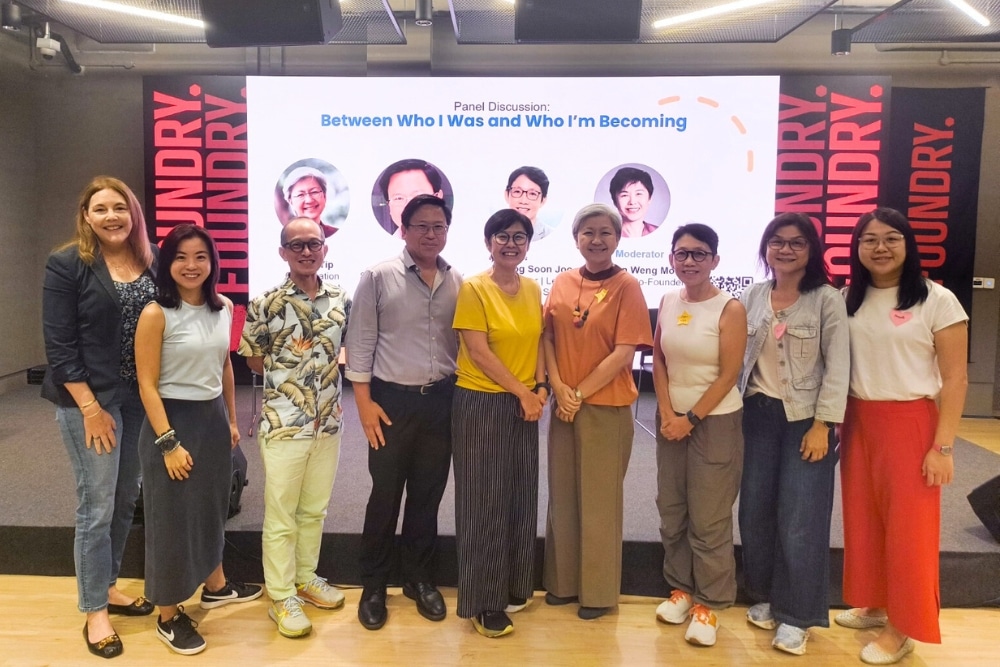
Credit: PEASE
The workshops culminate in regular PEASE Cafes, which are informal sessions for workshop participants to share their success stories. The team also invites experts and other notable voices in the ageing field (SilverStreak included!) to give their two cents.
Also read:
Movies & TV Shows Starring Senior Actors Worth Watching And Bingeing
Senior actors as pivotal main characters in films and TV shows often offer both inspirational and motivational food for thought.
A Concerted Effort: Of Blackpink, Bob Dylan And Lady Gaga
Sylvia Toh Paik Choo reminisces about how her love for concerts has evolved over time, especially with all the fuss about buying tickets for popular acts like Blackpink and Lady Gaga these days.
A growing need in super-aged Singapore
Demand for PEASE programmes has been steady, though its founders expect it to grow as Singapore ages.
By the end of the decade, one in four Singapore residents will be over the age of 65. Retirement, too, will only get later with the upcoming shifts of the retirement and reemployment ages.
Financially, while the programme is currently buoyed by the OSCAR Fund from non-profit Temasek Foundation, the founders hope that it will be able to reach critical mass soon.
To facilitate this, the team is looking to “train the trainers” and expand the number of programmes they have available. They are also looking to diversify into lunch talks for better outreach and awareness.
For now though, Weng Mooi and Wai Chong are happy just to see other people at the same stage of life getting the guidance they need.
It's very heartening to see people come together and leave with a common sense of purpose.
The former adds,
Head to their website to find out more about PEASE.

